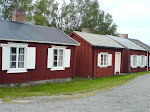. I got interested (see former
"As far as we are concerned the past exists as memories of what has already been processed by time; the future exists as expectations about what will occur later. In the four-dimensional world created In our mind we can place memories and expectations side-by-side and compare them. In this way even though the memories may be tainted by Imagination and reverie, we can still apply reasoning to determine the rationality of expectations, at least as they refer to our conception of the past existing In our memory. With this in mind we can return to our discussion of Luhmann. He placed everything that we relate to temporally into two categories: states and events.
Either, that Is to say, something can be Identified as an event, which Is fixed at a point In time and which Is unrelated to any present experience--since experience, as time advances, marches on unchecked, processing the future Into the past. Or, something can be Identified as state, which persists regardless of change over points In time. Duration, In this sense Is nothing more than the past flowing away. States can only be Identified as they exist In the present.
A state appears as something that extends both Into the future and the past. An event actualizes Itself In the present through the selective elimination of other possibilities, becomes a part of the past only when It can be established as a signpost superimposed on a state, and exists in the future only as an expectation. As Luhmann expressed it, every present has, as its own future, the unbounded prospects of its possibilities. The process of progressing toward the future is one of selecting new futures. Something is a state when its present future and its future present are identical. When events, that is, disjunctions between a present future and a future present, Impinge upon the model, then a conscious choice must be made. It presents a situation where the conditions in the future present are endangered by uncertainty in the present future.
The resolution of all social problems requires the concurrence of people whose mental model of the world Is unknown and Inevitably differs somewhat from that of each other. Out of this Luhmann developed a concept of trust. The kind of relations of time we have been discussing are vital to the development of trust, or as Luhmann puts It
Trust can only be secured and maintained In the present. Neither the uncertain future nor even the past can arouse trust since that which has been does not eliminate the possibility of the future discovery of alternate antecedents. The problem of trust therefore consists In the fact that the future contains far more possibilities than could ever be realized In the present and hence be transferred Into the past.
The problem of the present is mastery over events of the future. Trust helps to create a situation of lowered variety by increasing the "tolerance of uncertainty", for the reduction of problems of selection from a future that includes more possibilities than can be actualized. Of course, trust as a mechanism existing strictly in the present is essential to Luhmann's view of time as the sequential conversion of the future into the past. Time, as I have pictured it, however, is one dimension In a four dimensional representation of the three dimensional world traveling In the fourth dimension. Thus the present future Is an Important part of the present and trust as related to the immediate conception of the future present is part of the mechanism for determining the selection of future presents from the unlimited possibilities that lie in the present future. It Is one of the mechanisms which contribute to the emergence of social structures by helping to form the image of others in the model of reality that the individual carries in his mind and which is his only contact with external reality.
As with the emergence of any level In a complex system, social structures form at the interface between two networks, one, a serial network of change, Including both uncontrolled change, that is change determined by the environment and controlled change, or change determined by forces within the world model itself and the other a parallel network of communication, which occurs only in present time but links together related variety in the present". The important factor here is that in order for people to interact successfully with a world filled with excess variety they must choose from that variety a set of activities which will be mutually beneficial to each other. And, since there are many such sets, they must agree on which set they will in fact select. For this agreement there must be some kind of communication. In fact, since many of the selections are arbitrary, there must be a mechanism for inducing others to accept which of the arbitrary selections all will make. One such approach that Luhmann took was the concept of a communications media. Such media, he said, are formulated whenever the manner of one partners selection serves simultaneously as the motivating structure for the other. It serves to bind both partners who make their own selections Individually but are aware of the selections made by each other. In power as a communications media, for example, the power-holder himself must be made to exercise his power. Being the more independent party, It will often be easier for him to lie back and let things take their course.
To this extent, the Initial problem in all symbolically generalized communication media Is the same to this extent, what applies to love or truth applies to power. In each case the Influential communication relates to a partner who Is directed in the making of his selections.
A fundamental assumption of all power Is that uncertainty exists In relation to the power holder. He always has at his discretion more than one alternative. At the same time, he acts to remove uncertainty from his partner. The one subject to the power also has other alternatives. Power is greater when it can Influence action even in the face of attractive alternatives. Unlike power, coercion removes all choices from the subject bringing up another important point that Luhmann makes, "Power loses its function of bridging double contingency in the same proportion that it approaches the character of coercion."
Trust and power are two ways that the communications between members of a society merge their selection from variety. These merged selections, when they increase the likelihood that other selections will be made in line with them, tend to emerge into a level of a complex structure. The structure becomes another influence in the role of selectivity thus constraining the choices to those that tend to reinforce the structure, to give it characteristics and a purpose of its own, and to differentiate it from the rest of society.
System differentiation, as Luhmann explained, is thus: "Replication, within a system, of the difference between a system and its environment". He went on saying that In differentiated systems, we can find two environments: the external environment common to all subsystems, and the internal environment of each. Differentiation, then, is the replication of the interface between the system and Its environment In each of the subsystems. On the other hand, from our complex system, approach we can describe each subsystem as a semi-autonomous whole in itself interfacing not with the environment of the total system but with a selected portion of that environment, including such other subsystems as are appropriate by abstracting out that part of the total environment that has a meaningful effect on the subsystem. It can accomplish this because the outer environment itself is complex and it too can be related to according to semi-autonomous levels of activity.
The difference between this view and Luhmann's Is that we make the active element In every complex relation the individual. Each individual is in communication with a number of other individuals. In the four dimensional world of the mind other people exist as artificial constructions that mirror two kinds of interactions the individual has with others, the direct serial interactions with external individuals, and the impressions he gets of the world reflected in his internal models of others. The temporal effects for the two processes are quite different. The serial Interactions take place in a chronological time. There is a continuity with important or startling events marking off identifiable dates. Communications with internalized others, on the other hand, modify conceptions in the present. Changes of conceptions through serial interactions evolve slowly. In stable societies, (or for that matter in the more stable portions of any society) many generations may pass before any noticeable change takes place. Emergent change, through the parallel interaction of intra personal communication will often take place dramatically."





























